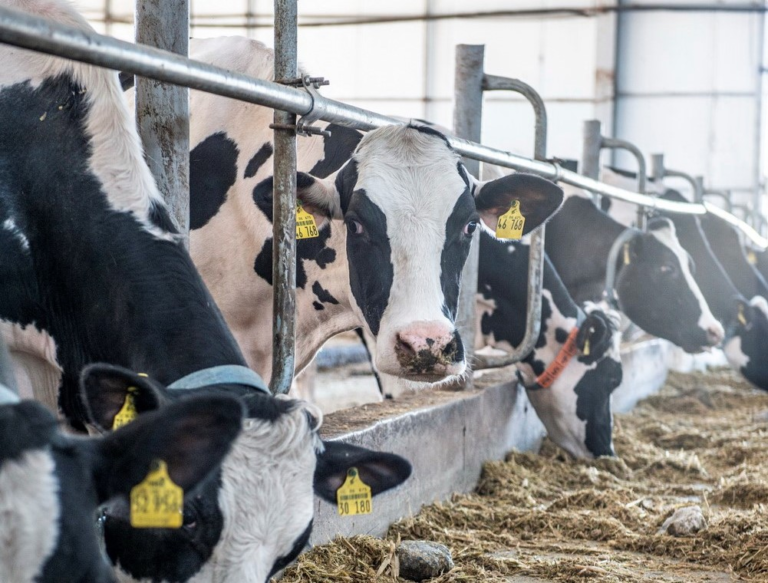The Benefits of Adding Frozen Vegetables for Dogs’ Diet
Frozen vegetables for dogs can be an excellent addition to their diet. They are packed with essential nutrients that can help keep your pet healthy and happy.
Many dog owners are looking for ways to ensure their furry friends get the best nutrition possible. Adding frozen vegetables to meals can be an easy and effective way to achieve this goal. Read on to learn more about the benefits of including frozen vegetables in your dog’s diet.
Nutritional Advantages
Frozen vegetables retain most of their nutrients compared to fresh vegetables. They are harvested and frozen at peak ripeness, locking in vitamins and minerals essential for a balanced diet. Commonly used frozen vegetables include peas, broccoli, green beans, and carrots.
To support your dog’s digestive health alongside adding frozen vegetables to their diet, you might consider exploring the best probiotics for dogs in Australia to ensure they’re getting comprehensive nutritional support.
These vegetables are rich in vitamins A, C, and K, as well as fiber. Fiber can help with digestion, keeping your dog’s gastrointestinal tract in good shape. Meanwhile, vitamins can boost your dog’s immune system, giving them the vitality they need for an active lifestyle.
Cost-Effectiveness
Not only are frozen vegetables healthy, but they are also cost-effective. Fresh vegetables can be expensive and have a shorter shelf life, often leading to waste. On the other hand, frozen vegetables are generally cheaper and can last for months in your freezer.
This way, you can provide your dog with nutritious meals without breaking the bank. The extended shelf life also means you can buy in bulk, saving more money in the long run.
Ease of Preparation
Preparing meals with frozen vegetables is quick and simple. You can easily steam them or thaw them in a microwave before mixing them into your dog’s food. This is particularly beneficial for busy pet owners who may not have the time to prepare elaborate meals.
Unlike fresh vegetables that require washing and chopping, frozen vegetables are ready to use right out of the bag. This can make meal preparation efficient and hassle-free.
Weight Management
Obesity is a common issue among pets, especially dogs. Incorporating frozen vegetables into your dog’s diet can help manage their weight. Vegetables are low in calories and can be used as fillers, making your dog feel full without consuming excess calories.
For example, replacing a portion of high-calorie kibble with steamed vegetables can reduce your dog’s overall calorie intake. This, in turn, helps maintain a healthy weight and reduce the risk of obesity-related illnesses like diabetes and heart disease.
Better Digestion
Frozen vegetables are high in fiber, aiding in better digestion. A diet rich in fiber can help prevent constipation and improve bowel movements. Green vegetables like spinach and peas are particularly effective in this regard.
By ensuring smooth digestion, you can keep your dog comfortable and less prone to gastrointestinal issues. Improved digestion also means better absorption of nutrients, fostering overall health and wellness.
Variety in Diet
Dogs can get bored with their meals just like humans do. Adding frozen vegetables can introduce variety into your dog’s diet. This can make their meals more appealing and enjoyable.
For instance, mixing up different kinds of vegetables can provide varied textures and flavors, ensuring your dog doesn’t get bored. Broccoli, peas, and carrots each have unique tastes and textures, offering a sensory experience that plain kibble can’t match. This variety can encourage better eating habits, ensuring your pet gets a balanced diet.
Allergy Management
Some dogs are allergic to certain proteins found in meat. Frozen vegetables can serve as an excellent alternative source of nutrition for dogs with food allergies. For example, dogs allergic to chicken or beef can still enjoy balanced meals with the inclusion of vegetables like green beans and peas.
These vegetables provide necessary nutrients while reducing the risk of allergic reactions. This makes meal planning easier for owners of dogs with specific dietary needs.
Improved Hydration
Frozen vegetables can also help keep your dog hydrated. When thawed, these vegetables release water that adds moisture to your dog’s diet. This is particularly beneficial for dogs that do not drink enough water.
Hydration is crucial for numerous bodily functions, including circulation and digestion. Thus, integrating water-rich vegetables can contribute to your dog’s overall hydration, keeping them energetic and healthy.
Enhanced Immunity
The vitamins and minerals in frozen vegetables can boost your dog’s immune system. Vitamin C, found in abundance in vegetables like broccoli and peas, is known for its immune-boosting properties.
A stronger immune system means your dog will be better equipped to fight off diseases and infections. Providing a nutrient-rich diet can go a long way in maintaining your pet’s health, ensuring that they live a long and healthy life.
Recommendations for Vegetable Choices
While many vegetables are safe for dogs, some should be avoided. Always steer clear of onions, garlic, and leeks, as they are toxic to dogs. Safe options include peas, carrots, green beans, and broccoli.
Introducing these vegetables gradually will allow you to monitor your dog’s reaction. Start with small portions and gradually increase the amount as your dog gets used to the new food. This approach can help you avoid any potential digestive issues.
Common Myths and Misconceptions
There are several myths surrounding feeding vegetables or legumes to dogs. One common misconception is that dogs do not require vegetables. Dogs are primarily carnivorous, it can provide essential nutrients that complement a meat-based diet.
While many are wondering, “Can dogs eat lentils or leafy greens?”, The answer is yes, as long as they are introduced gradually and in appropriate portions.
Another myth is that all “people food” is bad for dogs. While some human foods are harmful, many vegetables are beneficial for canine health. Understanding these nuances can help you make informed decisions about your dog’s diet.
The Benefits of Incorporating Frozen Vegetables for Dogs
Frozen vegetables for dogs can bring many benefits. They include better digestion and hydration, as well as stronger immunity and weight control. They are a cost-effective, convenient way to ensure your pet gets a balanced, nutrient-rich diet.
By introducing a variety of vegetables and serving them in different ways, you can make meals more enjoyable for your dog. Always consult your veterinarian for personalized advice tailored to your pet’s specific needs.
With the right approach, frozen vegetables can be a valuable addition to your dog’s nutrition. They contribute to a long and healthy life.
For similar topics, visit our blog!







